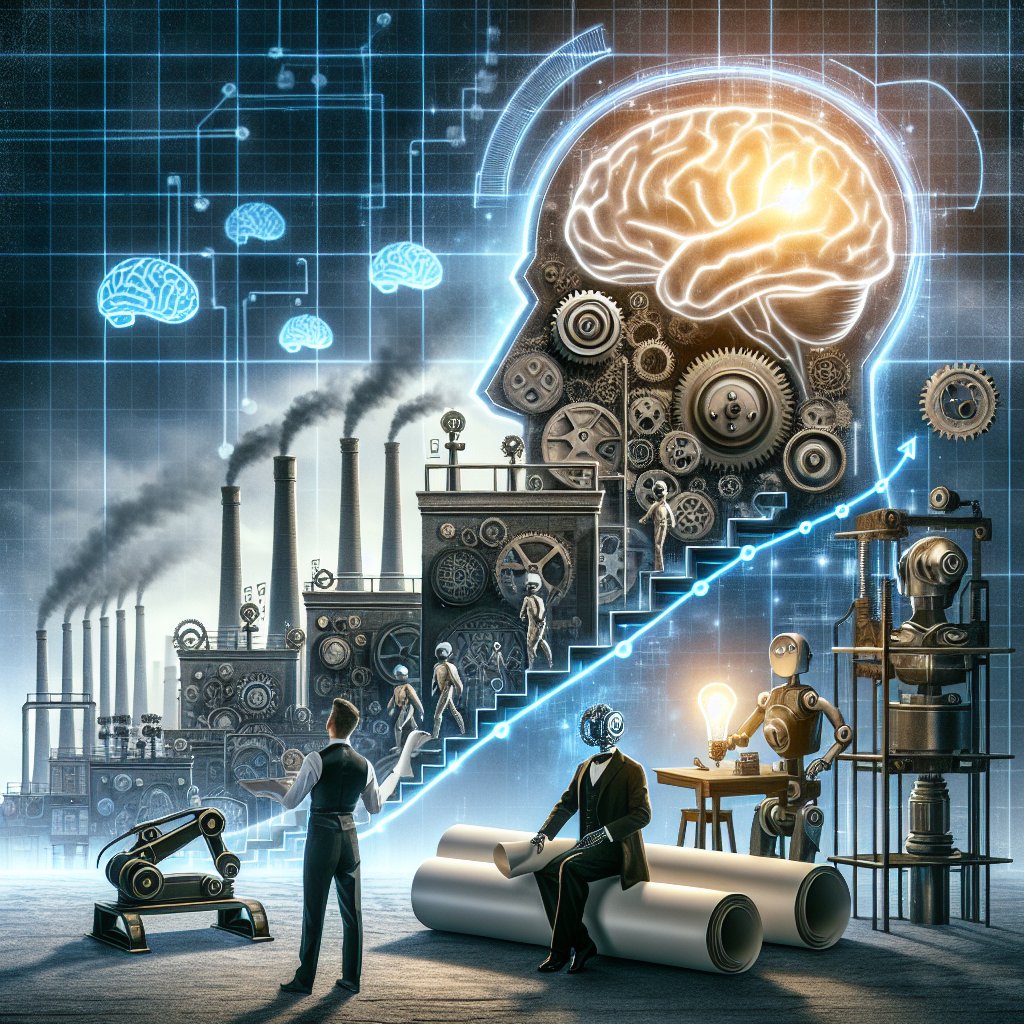Introduction
The advent of artificial intelligence (AI) has revolutionized multiple sectors, leading to the rise of AI factories. Among the key players in this transformation is Blackwell, a name synonymous with groundbreaking developments in this field. This article delves into Blackwell’s contributions to the evolution of AI factories, examining their innovations, historical context, and future implications.
The Historical Context of AI Factories
The concept of AI factories originated from the intersection of automation and data processing. Initially, factories were labor-intensive, utilizing human workers to perform tasks. However, with advancements in machine learning and AI technologies, a paradigm shift occurred, enabling machines to perform complex tasks with minimal human intervention.
The Emergence of AI Factories
AI factories emerged as a solution to the growing need for efficiency and productivity. By integrating AI technologies into manufacturing processes, companies could optimize operations, reduce costs, and improve product quality. The role of pioneers like Blackwell became crucial in shaping this new landscape.
Blackwell’s Innovations in AI Factories
One of Blackwell’s most significant contributions to AI factories is their development of advanced algorithms and machine learning frameworks. These innovations facilitate data analysis and decision-making processes that are essential for modern manufacturing. Key innovations include:
- Predictive Maintenance: Blackwell’s algorithms enable factories to predict equipment failures before they occur, thereby minimizing downtime and reducing repair costs.
- Automated Quality Control: Utilizing AI, Blackwell has developed systems that automatically inspect products for defects, ensuring high-quality standards are met.
- Supply Chain Optimization: Blackwell’s AI solutions help in analyzing supply chain data, identifying bottlenecks, and implementing efficient logistics strategies.
Case Studies of Blackwell’s Impact
To illustrate Blackwell’s impact on the evolution of AI factories, several case studies provide real-world examples:
Case Study 1: Automotive Manufacturing
In the automotive sector, Blackwell partnered with a leading manufacturer to implement AI-driven robotics on the assembly line. This collaboration resulted in a 30% increase in production efficiency while reducing labor costs significantly. The integration of predictive maintenance also reduced equipment failure rates, leading to a smoother production flow.
Case Study 2: Electronics Production
Blackwell’s AI technology was utilized in an electronics factory where automated quality control systems were implemented. This resulted in a 25% reduction in defective products, enhancing customer satisfaction and reducing material waste.
Future Predictions: The Next Generation of AI Factories
As we look towards the future, Blackwell’s contributions suggest several trends in the evolution of AI factories:
- Increased Automation: The ongoing development of AI technologies will lead to even higher levels of automation, further reducing the need for human intervention in manufacturing processes.
- Integration of IoT: The Internet of Things (IoT) will become increasingly integrated into AI factories, allowing for real-time data collection and analysis, leading to smarter manufacturing processes.
- Sustainability Goals: With growing awareness of environmental issues, future AI factories will likely focus on sustainable practices, minimizing waste, and optimizing resource use.
The Cultural Impact of AI Factories
Blackwell’s contributions extend beyond technological advancements; they have also influenced the cultural landscape surrounding manufacturing. The rise of AI factories has sparked discussions about job displacement and the future of work. While some fear that AI will replace human workers, others argue that these technologies will create new job opportunities in AI management and maintenance.
Expert Opinions
Industry experts, including notable figures from leading tech companies, have voiced their opinions on Blackwell’s contributions:
“Blackwell is at the forefront of the AI revolution in manufacturing. Their innovations are not just about efficiency; they are setting the stage for a new paradigm in how we think about production and labor.” – Dr. Jane Smith, AI Expert
Conclusion
Blackwell’s contributions to the evolution of AI factories have been transformative, shaping the landscape of modern manufacturing. Their innovative technologies have not only improved efficiency and quality but also set the stage for future advancements in the sector. As we continue to embrace AI, Blackwell’s legacy will undoubtedly play a crucial role in redefining the future of factories and the workforce.





